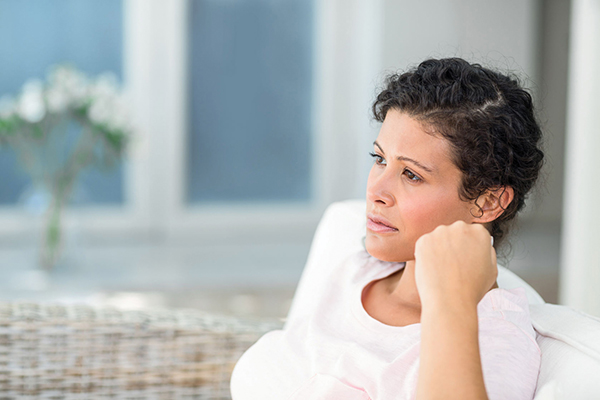Fighting Back against Cancer-Related Fatigue
by Lisa M. Wu, PhD, and Ali Amidi, PhD
“I feel so slow; it’s like I can barely put one foot in front of the other … ”
Sound familiar? When we talk about the “new normal” that follows a cancer diagnosis, it’s hard to imagine a life spent feeling so tired every single day. Living with fatigue related to cancer or its treatment can most certainly be a challenge. But armed with a bit of understanding about what cancer-related fatigue is, in addition to effective coping strategies, you can fight back against cancer-related fatigue.
Cancer-Related Fatigue Defined
Cancer-related fatigue is a feeling of tiredness or exhaustion that can be physical, emotional, and even cognitive. Although most people think of cancer-related fatigue as being caused by cancer treatment, in reality, it can occur at diagnosis, during treatment, and even long after treatment is over. It is the most common side effect of cancer treatment.
Cancer-related fatigue is quite different from regular fatigue because it is persistent. Unlike regular fatigue, cancer-related fatigue does not always get better with more rest, or even after a good night’s sleep. Having cancer-related fatigue can be upsetting, especially if you don’t feel like yourself anymore. It can affect your work and your home life, and it can even strain your relationships with others. Cancer-related fatigue can also be quite distressing, especially if you feel like there is no way to relieve it.
It is often the case that fatigue gets worse during cancer treatment (such as radiation therapy or chemotherapy) and then decreases once treatment has ended. But if fatigue persists even after treatment is over, this can be alarming for some individuals. Unfortunately, for many survivors, some level of cancer-related fatigue may persist for months and even years after treatment.
What Causes It
Research shows that cancer-related fatigue has several potential causes. First, the disease itself may play a significant role. Cancer may change your metabolism, causing your body to use up more energy, which can make you feel tired.
Second, cancer and cancer treatments may lead to your cells producing a certain type of signaling molecules called cytokines. Cancer survivors with an increase in the level of these cytokines sometimes experience fatigue, as well as other symptoms like loss of appetite, cognitive impairment, and depressed mood.
Third, cancer and cancer treatments may cause anemia. Anemia is a condition in which your body doesn’t have enough healthy red blood cells, which can lead to fatigue.
Finally, cancer and its treatment may disturb your circadian rhythms. Circadian rhythms are biological and behavioral processes (like sleep-wake cycles, for example) that follow the 24-hour day. When they are disturbed, this can contribute to fatigue, as well as other symptoms like cognitive impairment, depressed mood, and sleep problems.
Other related causes of fatigue include pain, distress, sleep problems, medications, nutritional deficiencies, and alcohol or recreational drug use.
Managing Your Fatigue
There are several things you can do to manage cancer-related fatigue. The first and most crucial is to talk with your doctor about cancer-related fatigue and any symptoms you may be having. Your doctor can help you understand more about cancer-related fatigue, determine what may be triggering your fatigue, and rule out other potential causes of fatigue, such as certain medical conditions or nutritional deficiencies. As of now, there are no established treatments for cancer-related fatigue that can eliminate it completely, but several strategies have shown promise in helping cancer survivors manage fatigue if it hits.
Before beginning any management plan for cancer-related fatigue, you should always work with a doctor to rule out any coexisting conditions that may be contributing to your fatigue and that need to be treated first (for example, anemia or sleep problems that may be making you tired). Your doctor can also help you decide whether a particular management strategy is right for you.
An abundance of research is showing that regular physical activity can be helpful in managing cancer-related fatigue. The type of activity doesn’t matter so much as finding an exercise program or activity that is tailored to your preferences and abilities. Walking, yoga, cycling, strength training, and aerobic exercise are all forms of physical activity that can help combat fatigue. If you find that exercise is challenging for you – maybe you have physical limitations that make it difficult to exercise – you may benefit from physical therapy or a formal cancer exercise program.
But what if you are still unable to exercise? Then, you may want to try a psychosocial approach like cognitive behavioral therapy, or CBT for short. With CBT you will work with a therapist or psychologist who will help you explore how fatigue affects you personally. Through CBT, you will learn how your feelings, thoughts, and behaviors are connected to the fatigue you are experiencing. You may also learn behavioral strategies for managing fatigue, such as stress management and relaxation techniques, as well as how to plan your activities in such a way so as to manage your fatigue better. Another psychosocial approach called mindfulness-based stress reduction, which combines meditation with a supportive group environment, may also help some cancer survivors with fatigue.
One more fatigue-management strategy that has shown some promise is light therapy, which involves sitting in front of a broad-spectrum lamp for a certain amount of time each day. Early research shows that using a light box for 30 minutes each morning may help prevent or treat fatigue in cancer survivors.
Finally …
It’s important to remember that, for most cancer survivors, fatigue symptoms will eventually decline over time. However, if you are experiencing fatigue, know that with guidance from your medical team and the right coping strategies, you can fight back against cancer-related fatigue.
Fatigue-Busting Strategies for Cancer Survivors
• Conserve your energy.
Track your daily activities in a notebook or using a smartphone app, and rate your energy levels doing those activities. Once you have a sense of your daily routines, start planning your days in such a way so as to take advantage of those times when you have the most energy. Anchor activities that require the most energy to times of the day when you feel the most energetic. Make sure you schedule plenty of downtime too. And be sure to be realistic when planning activities and setting your daily goals.
• Distract yourself.
Sometimes, it’s easier to power through your day if you have something else to focus on. For example, you may find it easier to get through the day when you are spending time with a friend than when you are sitting at home alone on the couch.
• Keep naps to less than 60 minutes.
Napping can be rejuvenating when your energy is low, and especially during times when your sleep is poor. But if you do nap during the day, try to keep it under 60 minutes so that you don’t disrupt your very important nighttime sleep.
• Get a good night’s sleep.
Since sleep problems are common in cancer survivors and can contribute to fatigue, it is very important to optimize your sleep by sticking to a regular sleep schedule. It can be helpful to monitor your sleep by keeping a sleep diary (or wearing a sleep tracker) for a couple of days to track the number of hours of sleep you get each night, the number of times you wake up during the night, the time it takes for you to fall asleep, and how often you wake up early. If you find that you are having problems sleeping, ask your doctor for advice on how to practice good sleep hygiene. In some cases, you may need to work with a sleep therapist to help you get back on track.

Dr. Lisa M. Wu is an assistant professor in the Department of Medical Social Sciences at Northwestern University Feinberg School of Medicine in Chicago, IL, and a member of Northwestern’s Cancer Control and Survivorship Program of the Robert H. Lurie Comprehensive Cancer Center. She is also a licensed clinical psychologist.
 Dr. Ali Amidi is a postdoctoral fellow and psychologist at the Unit for Psychooncology and Health Psychology in the Department of Oncology at Aarhus University Hospital in Denmark.
Dr. Ali Amidi is a postdoctoral fellow and psychologist at the Unit for Psychooncology and Health Psychology in the Department of Oncology at Aarhus University Hospital in Denmark.


